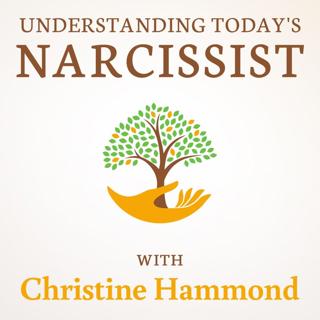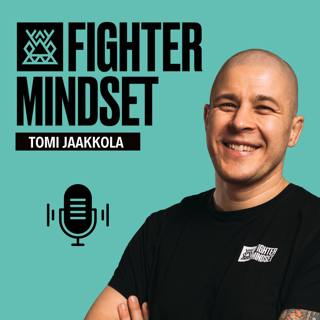
The Rules of Living in a Narcissistic Family
Every family has unspoken rules like: don’t wake mom when she is taking a nap, no matter what it tastes like say dad’s cooking is good, or always clean before grandma comes to the house. These guidelines are followed without question to keep the family running smoothly. However, when a narcissist is added to the mix, the rules take on more intensity. Read more... Advertising Inquiries: https://redcircle.com/brands Privacy & Opt-Out: https://redcircle.com/privacy
7 Marras 201912min

How Do Deceptive People Get Away with It?
David was the charismatic leader of a large not-for-profit organization which gave aid and care for the homeless. Over the past ten years, his organization, under his energetic leadership, grew substantially as donations increased, new shelters were formed, and thousands of people were assisted. On the surface, things seemed to above board and working well. But it wasn’t. Read more... Advertising Inquiries: https://redcircle.com/brands Privacy & Opt-Out: https://redcircle.com/privacy
3 Loka 201911min

Narcissistic Rescuers: Beware of the Backlash
The narcissist appears at the optimal time. A grieving family is destroyed over the death of a parent and is in desperate need of emotional stability. A spouse is torn apart by divorce and is starved for normal amounts of positive attention. A friend is destroyed by the betrayal of another and is craving a close relationship for support. Now, enter the narcissist. Hidden by a veil of perfection, the narcissist immediately endears themselves to the needy person (pets included) and navigates any personality differences with ease. They are charming, caring, generous, kind, and seem to have it all together. They anticipate the needs of others and come willingly to the rescue without complaint. Read more... Advertising Inquiries: https://redcircle.com/brands Privacy & Opt-Out: https://redcircle.com/privacy
19 Syys 201913min

7 Indicators of a Narcissistic Friend
Dawn ran into the grocery store to grab a few things after a long day of work when she bumped into a friend. “Where have you been? It’s so good to see you?” her friend inquired. “You know … work, family, kids. We’ve been so busy lately,” Dawn quickly replied while knowing that what she said was wrong. Unable to examine it at that moment she put the thought out of her head until she was alone in her car. Read more... Advertising Inquiries: https://redcircle.com/brands Privacy & Opt-Out: https://redcircle.com/privacy
5 Syys 201911min

Narcissists and Their Flying Monkeys
Art imitates life and so it is with “Flying Monkeys”. The term was coined from the movie “The Wizard of Oz” in which the Wicked Witch dispatches monkeys to fly and get Dorothy and her dog. The monkeys obey her command, doing her dirty work for her, taunting and terrorizing Dorothy as she tries in vain to get back home. And so it is with narcissists and their flying monkeys. Read more... Advertising Inquiries: https://redcircle.com/brands Privacy & Opt-Out: https://redcircle.com/privacy
16 Elo 201911min

7 Ways to Protect Your Kids from Your Narcissistic Ex
Sabrina was at her wit’s end. Her narcissistic ex-husband hit an all-time low. During their marriage, she was the target for his angry rants, verbal assaults, gaslighting, and guilt-tripping. But now his attacks seemed to center around just one of their two kids. Unfortunately, it was their ten-year-old child who most resembled Sabrina’s personality that was his new target. Their twelve-year-old child seemed to escape his scrutiny despite the recent in-school suspension and two failing grades. But it was the ten-year-old who was quiet, generally compliant, and rarely got into trouble that Sabrina’s ex attacked. Sabrina watched in horror as her child shut down, became unnecessarily anxious, was newly fearful, and depressed. Afraid that her child would become like her, Sabrina knew she had to speak to him. However, the last time she confronted him, he slapped her with a motion to modify parenting agreement accusing her of parental alienation. So, what could she do? Read more... Advertising Inquiries: https://redcircle.com/brands Privacy & Opt-Out: https://redcircle.com/privacy
3 Heinä 201913min

Who is the Most Narcissistic Generation?
Millennials are known as the most narcissistic generation of our time. The overindulge attention, special treatment for nothing special, and excessive emotional tolerance that parents gave their kids have not resulted in a more productive generation but rather one that seems apathetic. It’s a toss-up between who is more confused: Millennials because the world does not work the way they envision it should or other generations because they don’t understand how Millennials think. How did this happen? Some research has suggested that the lack of severe economic downturn during the childhood of millennials is to blame. Other hypothesis points the finger at parents who reinforced the idea that their child was so special that they didn’t have to adhere to the standards of society. While others believe society is responsible because every child received an award even when they came in the last place. Whatever the cause, the traits of narcissism seem to apply to this generation (generally speaking). Yet despite the similarities, Millennials are not the typical grandiose or covert narcissists. Rather, the traits of narcissism, not the disorder itself seems to be more characteristic. Read more... Advertising Inquiries: https://redcircle.com/brands Privacy & Opt-Out: https://redcircle.com/privacy
3 Heinä 201911min

What It’s Like to be the Daughter of a Sociopath
“I hate him, with every fiber of my being, I hate him,” Marie said as she looked back on her day. “But while I hate him for this moment, I won’t let the hate linger because I’m not going to give him that power over me.” After years of silence, her bio dad sent a package of weight loss tea to her work. It was his way of saying, “Happy Mother’s Day, I see you. I’m watching you. You need to lose weight.” This was not the first package of its kind. Over the 30 years of no contact, he would periodically send Marie a newspaper clipping, an article, or random note all with the same weight loss message. Marie knew it wasn’t about her weight, it was his way of sparking insecurity, disapproval, and paranoia in her. He did this to get her back for the years of distance. The packages almost always followed shortly after her brother, who kept limited contact, would have a visit with him. It took Marie years to unpack the damage his pathology did to her psyche. Sociopaths are gifted at installing bugs into a person’s hardware that can remain hidden for years which slow down the functioning of a person and can even destroy it if left unchecked. But this time, instead of sparking fear in Marie, she used his “gift” as a reminder of the now eradicated lies. Read more... Advertising Inquiries: https://redcircle.com/brands Privacy & Opt-Out: https://redcircle.com/privacy
7 Kesä 201916min





















